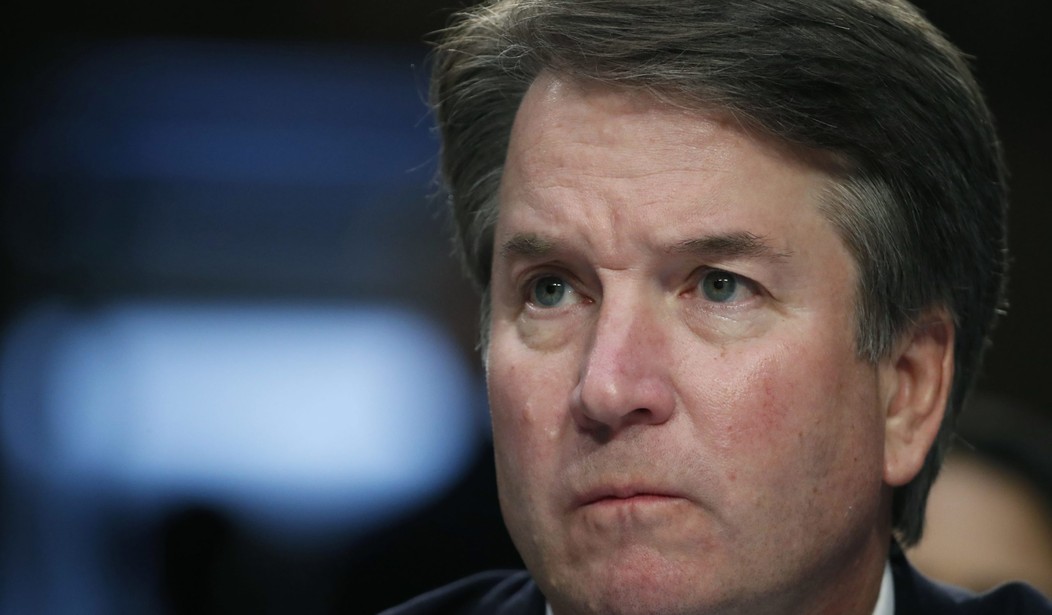On Monday, the U.S. Supreme Court refused to take up the case Gee v. Planned Parenthood of Gulf Coast. Only four justices were required to grant the case a hearing, and Justices Clarence Thomas, Samuel Alito, and Neil Gorsuch all dissented from the decision to drop the case — revealing Chief Justice John Roberts and Justice Brett Kavanaugh as allies of Planned Parenthood on this particular issue.
Kavanaugh’s reticence to take up the case could doom any effort to repeal the Roe v. Wade decision, despite Donald Trump’s promise in the 2016 election to nominate Supreme Court justices who would reverse Roe.
In Gee, the Supreme Court allowed the ruling of the 5th Circuit Court of Appeals to stand, striking down the state of Louisiana’s law preventing Planned Parenthood from receiving Medicaid reimbursements. In his scathing dissent, Clarence Thomas accused his fellow justices of dereliction on their constitutional duty in order to avoid a controversial ruling.
“Some tenuous connection to a politically fraught issue does not justify abdicating our judicial duty,” Thomas wrote in a scathing dissent joined by Alito and Gorsuch. “If anything, neutrally applying the law is all the more important when political issues are in the background.”
Thomas argued that the case did not directly involve abortion. Rather, Gee focused on the question of whether states have the ability to decide which health care providers do and do not qualify for Medicaid reimbursements. As of now, different district courts have drawn different conclusions, partially thanks to confusing Supreme Court precedents.
“We created this confusion. We should clear it up,” Thomas wrote.
He attributed the Court’s reticence to deal with this important issue to the fact that the specific cases involved Planned Parenthood. Perhaps the majority wished to address the Medicaid reimbursement issue in a case that does not involve the nation’s largest abortion provider.
The Medicaid reimbursement issue may indeed re-emerge in another context, and the Court should take up the issue. That does not make Kavanaugh’s decision against hearing this case any more reassuring to pro-life Americans, however.
One of the reasons Donald Trump won the 2016 election revolved around his promise to appoint originalist justices to the U.S. Supreme Court. Indeed, the candidate even promised to choose justices who would overturn Roe v. Wade, a decision that made it illegal for any state to outlaw abortion.
As soon as Trump nominated Brett Kavanaugh, abortion activists protested by dressing up in “Handmaid’s Tale” outfits, suggesting that Kavanaugh’s ascension to the Supreme Court represented a defeat for women’s rights and autonomy.
Kavanaugh prevailed in his herculean struggle to reach the Supreme Court, but that tense political maelstrom may have made him more hesitant to wade into tense political issues.
The justice’s decision not to hear Gee v. Planned Parenthood does not reveal him as a supporter of the nation’s largest abortion provider, but it does signal that Brett Kavanaugh is unwilling to address important issues before the Court, merely because of their tangential connection to a controversial political issue.
This bodes ill for the prospect of the Supreme Court taking up an abortion case that might challenge Roe v. Wade, and it may even suggest that Kavanaugh would be unwilling to join a majority striking down the Roe v. Wade ban on state abortion laws.
Furthermore, the fact that Gee v. Planned Parenthood involved states’ rights on the Medicaid funding issue suggests that Kavanaugh would take the politically “safe” side on another states’ rights issue — namely whether states could outlaw abortion.
The justice’s decision not to stand for states’ rights here may suggest a reticence to fight for states’ rights and repeal Roe v. Wade.
When millions of pro-life Americans cheered at Kavanaugh’s confirmation, they likely hoped that he would join the fight to restore states’ rights on the abortion issue. The justice dealt a tragic blow to that hope on Monday.
Follow the author of this article on Twitter at @Tyler2ONeil.









Join the conversation as a VIP Member